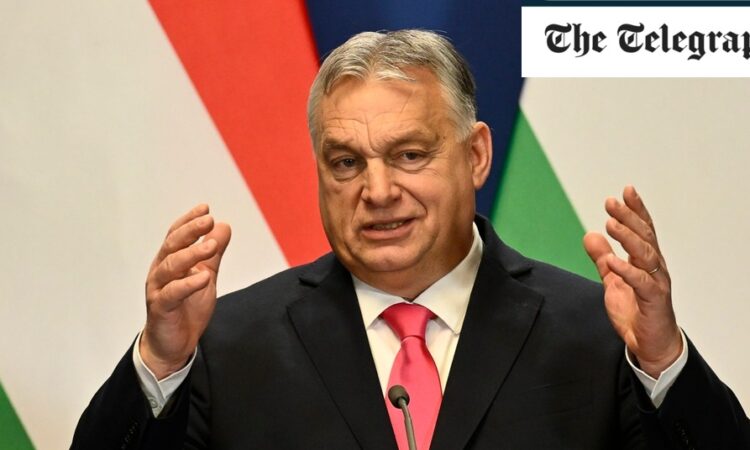
The Hungarian premier has repeatedly blocked or frustrated attempts by Brussels to support Ukraine or hammer Russia since the start of the full-scale invasion in February 2022.
He is seen as Vladimir Putin’s closest ally within the European Union.
The US has accused Mr Orban of acting in the interest of the Russian president by maintaining close ties with Moscow.
A senior EU official poured cold water on the FT’s report, saying it “does not reflect the status of the ongoing negotiations” and the document “does not outline a plan”.
Document described as ‘spin’
The European Commission said it was not aware of the proposal to cripple Hungary’s economy.
Diplomats denied knowledge of the document, suggesting it had not been discussed at any significant level as a potential plan, and described it as “spin”.
But most said the leak was evidence of the growing despair Brussels has with Budapest’s ability to snarl up decision-making with its veto.
“We’re not willing to further entertain his antics,” a diplomat said.
An insider added: “Patience is wearing thin with Orban.
“If Brexit hadn’t happened I think Hungary would have been confronted much more forcefully before now.”
However, on Monday night there was hope of a compromise by Hungary when EU leaders met to discuss the Ukraine fund on Thursday.
Budapest has told national capitals it will allow the €50 billion in loans and grants for Kyiv to be funded from the bloc’s budget as long as it can veto the scheme in the future through an annual review.
Ahead of the summit, some EU leaders and the European Parliament had mulled over a plan to remove Hungary’s voting rights by triggering Article 7.
However, many European capitals deemed this measure to be extreme and suggested it would not get unanimous support from the member states.
Another plan B drawn up by European officials would see the bloc’s 26 other members finance the aid for Kyiv among themselves.
Brussels has often used economic threats against member states, including Hungary and Poland in disputes over the rule of law and Greece during the Eurozone crisis.
But it has never gone as far as threatening to crash a member state’s economy for not falling in line with a bloc-wide plan.






